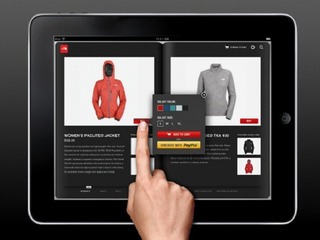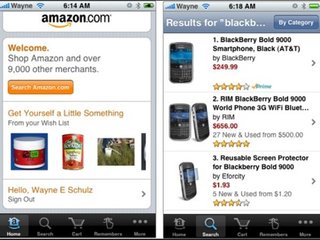
Number of mobile shoppers double in the last year
More than 40% of 18-34 year olds in the US and UK made a mobile purchase

It’s no secret that the world is going mobile. Pretty soon everything we do will be on a smartphone or tablet, and that includes shopping.
So it does not come as much of a shock that a new survey from digital marketing group Econsultancy, released Friday, shows that the number of people shopping on a mobile device has doubled in the past year.
While Econsultancy notes that a majority of people surveyed had not actually made a purchase from a mobile device, only 25% in the UK and 28% in the US, the more significant finding is that number has doubled in the past year from 13% and 12%, respectively. And that number becomes even more important when broken down by age.
Nearly half of those in the 18-34 age group had made purchases on a mobile device, with 44% in the UK and 42% of those in the U.S. That number does not reach 30% for 35-54 year olds, and online shopping barely even seems to occur at all with those 55 and older, with only 8% in the UK and 13% in the U.S. taking part in the practice.

When it comes to multi-channel retail, or the ability for consumers to purchase products from channels other than in store, meaning online or by mobile, nearly 40% of respondents in both countries felt very strongly about the issue, while around 50% thought it was important but not crucial. Only a scant 14% of UK respondents, and 15% of US respondents, felt the ability to purchase from different channels didn’t matter at all to them.
Once again, when broken down by age, it is the youngest age group who were more likely to say that multi-channel retail was important to them. Of the 18 -34 year olds surveyed, it was 53% in the UK, and 45% in the U.S., who responded that it was very important. Comparatively, only 28% and 29% of respondents aged 55 and over said the same thing.

When it comes to doing research online before making a purchase, however, nearly everyone surveyed said that they did this, with 96% of those in the UK and 94% of those in the US. Older people may not feel comfortable buying things online, but it has become a trusted source of information.
Given that using the Internet for information about products is fairly universal, there are multichannel retailers in the UK who are attempting to capitalize on this by having people reserve products online, then pick them up in the store. This is a service that is much more popular in the UK, where 60% of those surveyed said that they had done this in the past year, compared to only 38% in the U.S. Still, those numbers have both increased from 2011 when it was 57% in the UK and 31% in the U.S.
The survey consisted of 1,000 participants in the UK and 1,000 in the U.S. in August of this year. Of those 2,000 people, 68% were female, and only 38% male. 31% were aged 18 to 34, 41% were 35-54 and 28% were 5 or older.
Other mobile shopping data
Mobile shopping is becoming so popular that data is constantly pouring in about who is buying, how much they are spending, and where they are spending it.
A report by comScore earlier this month found that 80% of smartphone owners, who number 85.9 million altogether, accessed retail content from their phones in July.
The report found that women and iPhone owners were the most likely to shop from their devices, with Amazon sites being the most popular destination, by far. Amazon drew nearly half of all smartphone owners in July, with 49.6 million unique visitors, or 46.6% of smartphone owners. EBay came in second with 32.6 million uniques, followed by Apple, with 17.7 million visitors. Among brick-and-mortar retailers, Wal-mart took the top spot with 16.3 million uniques, followed by Target with 10 million and Best Buy with 7.2 million.
In April, a report released by RichRelevance found that when it comes to tablets, of all the shopping done on mobile devices in the United States, nearly 65% of it was done on an iPad, and that iPad users, on average, spend more than the owner of any other device, including those buying on their desktops.
(Image source: https://www.pocket-lint.com)
Related News


Mobile shopping on the rise, security measures lacking

Amazon beats Apple in mobile customer satisfaction

PayDragon launches mobile checkout for grocery items

